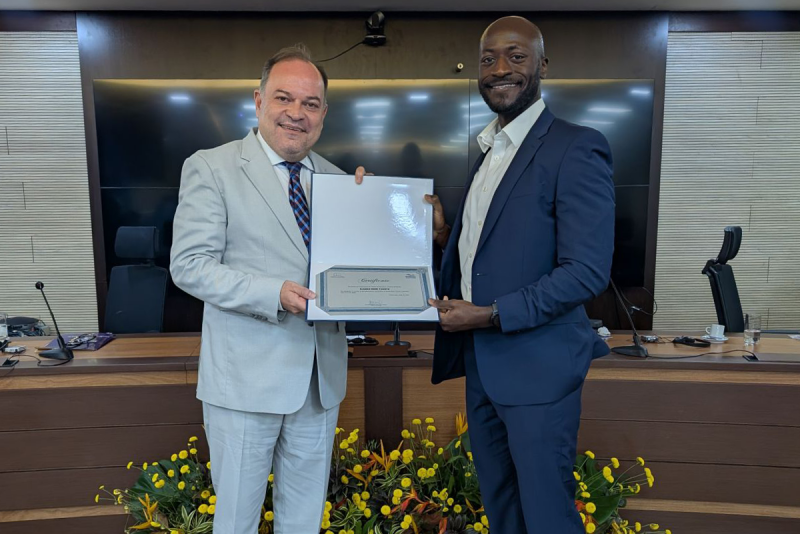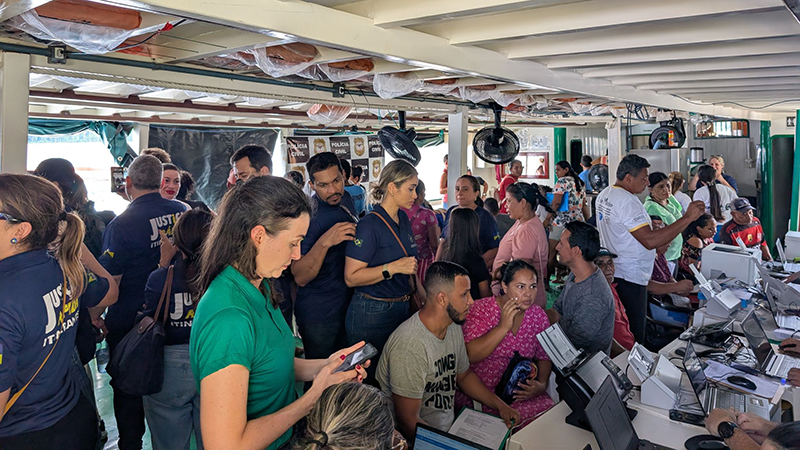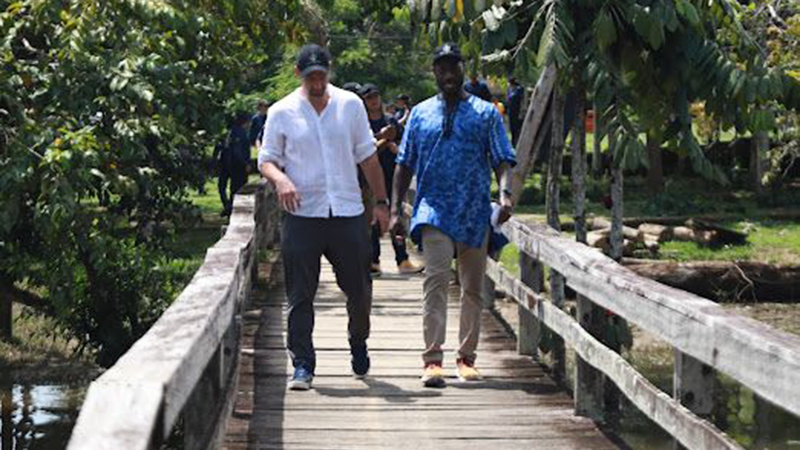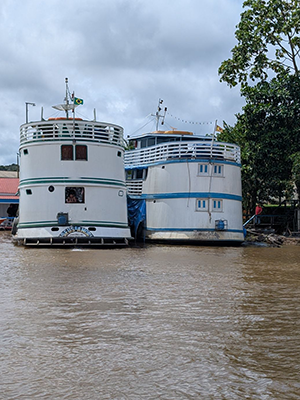Law Professor’s Research Helps Make Judiciary More Accessible in Brazil

Assistant Professor Oladeji Tiamiyu (r) accepts an award for his research on the intersection of dispute resolution and technology.
Oladeji Tiamiyu, assistant professor at the Sturm College of Law, was recognized for Impactful and Innovative Research by the Brazilian state of Rondônia for his focus on dispute resolution and technology, which has helped rural and remote communities in the Amazon region of South America access the justice system in Brazil. The state of Rondônia is the fifth least populated of Brazil’s 26 states, and its government has a strong interest in exploring how best to promote access to justice for its citizens, who have historically used innovative transportation methods to promote access to justice.
One of those methods has been holding court on boats, which has brought dispute resolution to communities where individuals would have physical difficulty getting to a courthouse. Recently, Rondônia has experimented with using technology and online processes to make dispute resolution more accessible, which intersects with Tiamiyu’s research and the issues he is exploring connected to the pilot projects of the state’s courts.
Inspired by the pandemic and a recognition that the field of dispute resolution would be substantially disrupted when parties were limited in their ability to go to a physical courthouse or in-person mediation, Tiamiyu began researching the intersection of dispute resolution and technology. He was curious about how the transition to a digital environment affects process-oriented considerations, posing questions such as:
- Do parties feel more comfortable navigating conflict online?
- Does the online environment ease cooperation, or does reduced ability to read body language increase adversarial bias?
- How does a mediation or arbitration proceeding change when the parties never need to physically “confront” their counterpart?
For Tiamiyu, these are all interesting questions that are posed once dispute resolution moves online.
Practical Implications for Courts in Rondônia and Beyond
Tiamiyu believes that procedural options and flexible dispute resolution systems are critical for the modern economy. He argues that logistical barriers for access to justice can disincentivize parties from going to physical mediations and courts. Such barriers can include things as simple as finding childcare or transportation, especially for low-income communities. For Rondônia, which has prioritized nomadic justice and providing greater flexibility and choice for disputing parties, courts have been highly receptive to online proceedings that decrease such barriers. Tiamiyu is glad that his research has contributed to those efforts.
Personal Reflections on the Trip to Rondônia
Along with his thoughts on the implications of his research, Professor Tiamiyu provided some personal reflections on the experience of traveling to Brazil to receive the recognition.
“Part of my trip with the judiciary involved taking boats through the Madeira River in the Amazon. The river is sacred and incredibly well-maintained. The flora and fauna were uniquely beautiful. After hours on the Madeira River, we reached a remote community and the ‘justice boat’ and judges conducted hearings, resolved disputes, and officiated weddings. Seeing these judicial operations increased my belief that justice is a feeling, and not only a physical space. The space can change and evolve, but the guiding principle should always be that everyone has an experience that is responsive to their needs and limitations. It was easy to see the ‘justice boat’ developing into a ‘digital justice boat’ that gives individuals more choice in how they concretely experience the feeling of justice.”
“I am very grateful to the Rondônia state court. I also have a profound sense of humility to be welcomed into indigenous communities in Brazil whose lands are sacred and worthy of continued preservation.”





